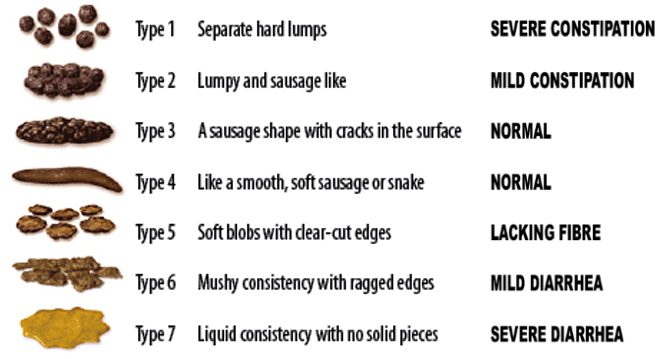Constipation
Constipation is a common symptom that can be used to refer to different symptoms. Some use it to imply hard stools while others use it to describe infrequent stools. Constipation is commonly caused by inadequate oral fluid intake and / or inadequate fibre intake. However, in some patients, constipation is the result of an underlying problem which can be difficult to treat. These include slow transit constipation, pelvic floor dysfunction with outlet obstruction and irritable bowel syndrome (IBS) with constipation.
Patients with constipation are more likely to experience other perianal problems such as haemorrhoidal disease and also anal fissures. Additionally, patients may also experience problems with abdominal bloating and crampy abdominal pain.
Stool consistency (see Bristol stool chart) is very helpful in helping with the understanding of constipation.
In the first instance, patients are usually commenced on a trial of conservative management by increasing fibre and fluid intake. Patients with more severe symptoms may require additional investigations including a colonic transit study and defaecating proctogram to distinguish between the sub types of constipation. Specialised diets such as a low FODMAP diet may help patients with IBS related constipation. Selected patients may benefit from medical therapy such as Prucalopride. Surgery may occasionally be needed in selected patients and your specialist will be able to discuss this with you.

